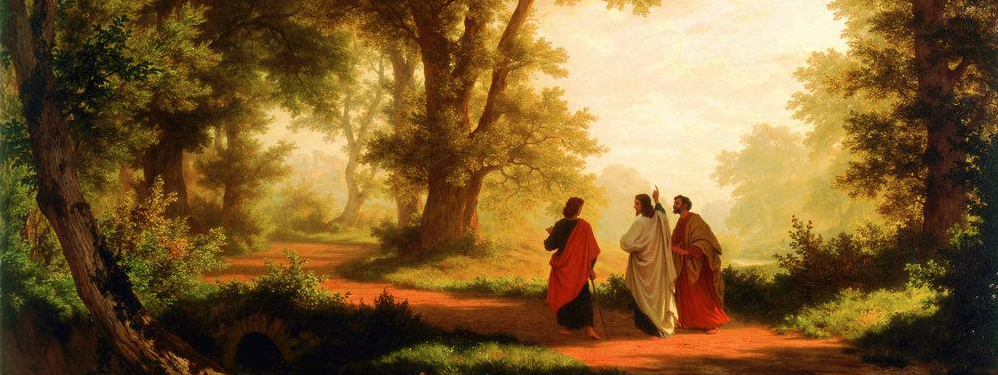
by Fr. Jonathan Cholcher
Mention of the word “politics” produces an almost immediate reaction in anyone who hears it. Either defensive or eager to engage, this reaction is seldom if ever neutral or unaffected. The famous saying of Aristotle (3rd c. B.C.) still holds true: “Man is a political animal.” Politics cannot be ignored among thinking human beings, although it is frequently avoided because the meaning and aims of the subject are so commonly ill-defined between those who would consider and discuss it. This lack of definition leads to misunderstanding, misunderstanding to frustration, frustration to conflict, and conflict to cutting off all communication.
The subject of politics, at its essence, requires communication, sometimes called negotiation, or compromise. Politics assumes that it is normal for human beings to interact as a community for our well-being and growth, and that a well-ordered society affecting all is a work in progress just as each person’s life within that society is a work in progress. At its core, politics assumes that our lives functioning together will be mutually beneficial, that this is something we should seek together.
The word “politics” has at its root the Greek word “polis,” that is, an organized town, or city, that is, one’s local hometown. The Latin (Roman) equivalent is the word “civitas” from which comes our terms civics, civility, city, and citizen. Aside from the forms of governance within the polis, or city, the concept of politics simply entails the necessity of trying to co-exist, work, and live together in a home community the best way possible.
When people start focusing more on the form of governing the polis, especially as that concept expands to include more than just the local community (the “state”), discussion frequently becomes divisive, or as we so often say today, “political.” Instead of yielding our discussions to the common ground of mutual benefit, we tend to skip over that part and proceed directly to advancing our own opinions as to how we think that should be done, enshrining these ideas in a system of laws with their corresponding concepts of truth, goodness, and justice. “Politics” then easily takes on the negative tone of how to use the system of governing people to compel, manipulate, or persuade them for one’s own advantage or the advantage of one’s party of friends and allies.
Yet what is the ultimate goal of politics? Why and how should people live together in an organized society? Who gets to determine and enforce standards of right and wrong, good and evil, justice and injustice, life and death?
The Apostle Paul writes to the Romans (13:1, 4): “Let every soul be subordinate to the governing authorities. For there is no authority except from God, and the authorities that exist are appointed by God…For he is God’s minister to you for good. But if you do evil, be afraid; for he does not bear the sword in vain, for he is God’s minister, an avenger to execute wrath on him who practices evil.” Likewise, the Apostle Peter: “Therefore subordinate yourselves to every ordinance of man for the Lord’s sake, whether to the king as supreme, or to governors, as to those who are sent by him for the punishment of evildoers and for the praise of those who do good” (1 Pet. 2:13-14). Our Lord says, “Render therefore to Caesar the things that are Caesar’s, and to God the things that are God’s” (Matt. 22:21; see also Jn. 19:11).
Christians are not to honor a particular form of government per se, but to honor the authority itself operating within the various forms of government. Conversely, regardless of the position within a political system: a monarch, a president, a dictator on down through the official ranks, persons in positions of authority rule by the gift of God, and are therefore answerable to God for how they use that authority.
The ultimate standards of right and wrong, good and evil, justice and injustice, life and death come from God Himself, and the organization of the polis (politics) should embody what God directs, just as our personal lives as creatures of God should embody the directions of the Creator. Politics becomes problematic and pejorative when the emphasis is taken from God and placed on human opinions which drift farther and farther away from the communion of God into the promotion of the self. It is possible for such politics and political systems to become anti-God and anti-Christian, and therefore to be avoided, or even rejected, by godly people (Acts 5:29).
Prefacing the passage above, the Apostle Peter writes thus: “Beloved, I beg you as sojourners and pilgrims, abstain from fleshly lusts which war against the soul” (1 Pet. 2:11). The Apostle Paul writes: “But now they [strangers and pilgrims on the earth] desire a better, that is, a heavenly country. Therefore God is not ashamed to be called their God, for He has prepared a city for them”; then a little later, “But you have come to Mount Zion and to the city of the living God, the heavenly Jerusalem, to an innumerable company of angels, to the general assembly and church of the firstborn who are registered in heaven, to God the Judge of all…” (Heb. 11:13, 16; 12:22-23).
Clearly Christians have an understanding of politics – a city and how it’s organized – but not according to this world. “For our citizenship is in heaven, from which we also eagerly wait for the Savior, the Lord Jesus Christ” (Phil. 3:20). The Church is our city, our polis, wherever it is gathered in liturgical assembly around Christ its Head, King, Bishop, Shepherd, and Priest.
The Church exists among the faithful in every political system of the world, praying for its rulers (1 Tim. 2:1-2), confessing the truth and calling all to righteousness in God (Ps. 118:46; Matt. 14:4; Acts 26:25-28). The work of the Church is not to encourage political revolution, but rather political transformation, not the goal of an organizational change of the exercise of power over others, but a reorientation of the hearts of those in and under authority toward godliness and love in Christ. Politics must be lifted above the concerns of this material, dying world and imbued with divine and lasting purpose.
As we are bound together in a mutual society of people, politics is an unavoidable aspect of our life. Like everything else in life, politics can be redeemed in Christ and exercised as an instrument for good to the glory of God.
